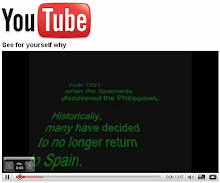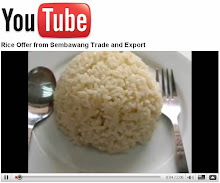

In the 1970’s, a certain Korean have visited the Philippines. He was amazed and envious on what he saw. He prayed, “Lord, please make Korea as green as the Philippines.” A couple of decades passed and a certain Filipino was invited to Korea to visit a prayer mountain there. On their way to the site, they passed the fields and forests. He was astounded and cannot help it but to compare. He then prayed, “Lord, please make Philippines as green as Korea.”
Funny but it is a painful reality. But would you believe that Korea was not that progressive then as they are right now. They actually pass through a long learning process. And the people behind were not the prominent figures of society, but the ordinary ones. These people had ask what they could do for their country, not what their country could do for them.
On World War 2, Japanese Imperial Army ransacked both their natural resources and national treasures. Their food crops and forest products were seized by Japanese soldiers. Years passed after the devastating effects of World War II, civil war erupted. Korea wage war with itself. Later on it was divided into North and South. As South Korea was recovering from the ravages of war, an ordinary citizen made an extra ordinary contribution to its struggling economy via innovative farming. His style is unbound from traditional to one of the most effective at that era. With the support of his family and workers, harvests multiplied. In just a matter of years, his success and method were being followed. He became an inspiration and later on inspired the head of state. He was even visited by the Political figures for a conversation. Later on, a law was passed urging other Korean farmers to follow his foot steps. Other Korean leader then was also inspired and saw the potentials in turning agriculture as a backbone of their struggling economy. They have developed it as their stepping stone to what they are right now, and they succeeded. The farming style was named, “Canaan farming.” And a farming school was even established out of it. The man behind was an ordinary farmer-entrepreneur who started from scratch. His name is Kim Yong-Ki. This serves as proof that even sweet potato could change the course of history, if we are determined.
This ordinary man’s achievement later on inspired Japan and other nations. On 1966, one of Philippines most prolific and prestigious award giving bodies has recognized his contributions. He was a “Ramon Magsaysay awardee for Public Service.” The Board of Trustees recognizes his example of Christian principles practically applied to improve agriculture and imbue rural life with new joy and dignity.
KIM YONG-KI was a son of ordinary farmer parents, Kim Choon Kyo and Kim Kong Yoon. He was born on September 5, 1908 at Nungnai-ri, Wabu-myun, a rural community of Yangjoo County, Kyoungi Province, in the central area of the Korean Peninsula. His father had attended a Presbyterian school and his mother was a devout, practical Christian. Kim was the fourth among 5 sons. Kim’s childhood was very normal yet well read and was tasked to help his parents in the field. The vision of rejuvenating Korean rural life led Kim to establish Canaan. It started on his youth days.
He was 23 when he inherited from his father a small farm in Bongan, Kyoungi, not far from his parental home. His faith, good example and hard work had influenced for a better change the plight of the common man in farming. The farm was a wasteland so he elected to plant sweet potatoes because they would grow in poor soil and under any climatic conditions in Korea. His determination and practical approach had produced perhaps the best sweet potato and an outstanding farmers in Korea.
In the previous year KIM had married Kim Bong Hi, who became his partner in the enterprise. First, the idealistic young husband sent his bride, who had received only a primary education, to Seoul for further schooling. Living was never easy but there was satisfaction for the family in the produce of their labor. The KIMs' three sons and two daughters, like their father, began as small children to share in the family work.
After seven years of experimentation, KIM developed a method for storing sweet potatoes for 12 months which highly trained Japanese farmers had failed to do. The achievement called him to the attention of Japanese officials and the secretary to the Japanese Governor of Korea paid a visit to his farm. This success confirmed his decision to be a "studying farmer." Since then he has continuously experimented to increase production and up-grade field crops, vegetables, fruits, and livestock, and better preserve and store produce. The Bongan farm flourished in the 15 years from 1930 to 1945.With his desire for an expansion, Kim sold the Bongan farm in 1945 and reinvent everything. He bought in Koyang County of Kyoungi Province another piece of wasteland where he established an entirely new settlement. In it he established not just a farm but a community with school was for farmers.
 KIM and his family are the core faculty of the Canaan Farmer's School, working from four in the morning until 10 in the evening. But they also invited well experienced and specialist lecturers. And in just a matter of four years, less than 2,000 men and women have trained. The school has revolutionized farming then on their area and made new breed of farmers with openness to new ideas. Of course, they learned the basic planting and raising of field crops, vegetables, fruit trees, strawberries, bees, rabbits, goats, cattle and much else. Self esteem and contentment was also uplifted among farmers. The sense of nearness to God and nature that this allows; these they have carried with them to other villages.
KIM and his family are the core faculty of the Canaan Farmer's School, working from four in the morning until 10 in the evening. But they also invited well experienced and specialist lecturers. And in just a matter of four years, less than 2,000 men and women have trained. The school has revolutionized farming then on their area and made new breed of farmers with openness to new ideas. Of course, they learned the basic planting and raising of field crops, vegetables, fruit trees, strawberries, bees, rabbits, goats, cattle and much else. Self esteem and contentment was also uplifted among farmers. The sense of nearness to God and nature that this allows; these they have carried with them to other villages. It was in the 1950s that KIM moved to Yongin County where he led in creation of the Farmer's Evangelical Folk High School. After five years he could leave this institution to the management of associates and move on to found the Canaan farm and school. Kim has literally influenced the spiritual awakening of farmers in Korea on that era.In just a span of five years, KIM sold the Koyang farm and again "ventured for victory" on a piece of mountain land in Yong-in County of Kyoungi. It became the core of a third "model" village. There KIM organized an Evangelical Farming Institute and a Farmers' Evangelical Junior School. But this farm was again sold after three years to intimate friends in the community who are not farmers but have continued the Evangelical Junior School using KIM's principles.
Later Kim purchased in 1954 the 10,000 pyung plot known as "Whangsan," or "Wasted Hill." (roughly three and one-half hectares). KIM wanted now to be near the capital so that more people would see what could be done with  unproductive land. It was located only some 40 minutes by local bus from Seoul, near the southeast boundary of the city in the administrative district of Pungsan Ri.He was finally recognized by the Korean government in 1960. He received the Cultural Award from the Minister of Public Information and the following year a citation from the Minister of Agriculture and Forestry.
unproductive land. It was located only some 40 minutes by local bus from Seoul, near the southeast boundary of the city in the administrative district of Pungsan Ri.He was finally recognized by the Korean government in 1960. He received the Cultural Award from the Minister of Public Information and the following year a citation from the Minister of Agriculture and Forestry.
 unproductive land. It was located only some 40 minutes by local bus from Seoul, near the southeast boundary of the city in the administrative district of Pungsan Ri.He was finally recognized by the Korean government in 1960. He received the Cultural Award from the Minister of Public Information and the following year a citation from the Minister of Agriculture and Forestry.
unproductive land. It was located only some 40 minutes by local bus from Seoul, near the southeast boundary of the city in the administrative district of Pungsan Ri.He was finally recognized by the Korean government in 1960. He received the Cultural Award from the Minister of Public Information and the following year a citation from the Minister of Agriculture and Forestry.In 1962 he received three letters of appreciation from the Minister of Agriculture and Forestry, from the National Reconstruction Movement Kyoungi Branch, and from the Minister of Public Information, as well as a citation from the Governor of Kyoungi Province. The Chief of Staff of the Korean Air Force addressed a citation to KIM on June 26, 1964 and earlier invited him to lecture before a group of officers and enlisted men. His audience was so enthusiastic that similar lectures were arranged at every airbase and the Air Force sent enlisted men to Canaan Farm for training. In 1965 KIM received a third commendation from the Minister of Agriculture and Forestry. Government officials have asked KIM what they could do to help but he refuses assistance: "Please do not make any disturbance," he requests, "that is the best way to help me."KIM's success symbolizes the hope of all Korean farmers, and perhaps even in other nation. He has proven to himself that even a waste land can turn out to be your dream land. But what amazes me is that in spite of his attained status, he never forgotten where he came. His success is also the uplifting of other farmers below him. His motivation is to serve his fellow farmers. "His Christian devotion and patriotic zeal are the source of abundant inspiration to all Koreans," as the title of his book suggests, he has shown to Korean farmers 'the way to a true living'."
.jpg)
.jpg)



No comments:
Post a Comment